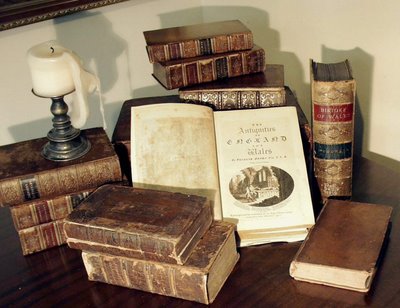Attention Internet: Reply to the Library of Congress!
 I've always had a little bit of a thing for the Library of Congress--I mean, who isn't curious about the group of people who assign ISBN numbers, catalog books, and keep a copy of every single publication America has or will produce until the end of time?
I've always had a little bit of a thing for the Library of Congress--I mean, who isn't curious about the group of people who assign ISBN numbers, catalog books, and keep a copy of every single publication America has or will produce until the end of time?But last month...the Library of Congress got that little bit cooler. First, some history
In 2000, the good people there realized that:
The Library's traditional functions of acquiring, cataloging, preserving and serving materials of historical importance to the Congress and the American people to foster education and scholarship extend to digital materials, including Web sites.The LOC established a pilot project designed to preserve these primary source materials.
A multidisciplinary team of Library staff studied methods to evaluate, select, collect, catalog, provide access to, and preserve unique web content reporting on a variety of topics for future generations of researchers.
In July 2003, the Library and the national libraries of Australia, Canada, Denmark, Finland, France, Iceland, Italy, Norway, Sweden, the British Library (UK), and the Internet Archive (USA) acknowledged the importance of international collaboration for preserving Internet content for future generations and formed the International
Internet Preservation Consortium.
Recognizing the importance of preserving web-based content and coverage of some of the era's most important events, LOC finally and officially instituted an official Web Capture Team, "to support the goal of managing and sustaining at-risk digital content." The team launched the Web Capture site at the Library of Congress homepage in May, taking visitors inside LOC's Internet preservation program. So far there are materials on the Iraq War, Hurricane Katrina, and the upcoming Election 2006, to name just a few of the subjects covered.
 Web capture culls content from thousands of Web sites within a single theme, adding up to about a terabyte (1,000 gigabytes) of collected material per month. The collection already boasts more than 45 terabytes of storage. Websites captured are almost always noncommercial in nature--including newsletters, campaign, public advocacy sites, and sites primarily centered on political and public policy issues.
Web capture culls content from thousands of Web sites within a single theme, adding up to about a terabyte (1,000 gigabytes) of collected material per month. The collection already boasts more than 45 terabytes of storage. Websites captured are almost always noncommercial in nature--including newsletters, campaign, public advocacy sites, and sites primarily centered on political and public policy issues.incredible, right? right. but...
Because of copyright restrictions, the Library can only collect and display materials—or make them available for online searches—after it has secured permission from the resource's owner or author. Unfortunately, LOC only gets a 25 to 50 percent response rate when contacting those in charge. As a result, only a few collections, including the one on Hurricane Katrina and another on September 11th, are retrievable over the Internet.So, you don't have to answer my email, kids...but when you get email from the Library of Congress...answer it. For history's sake.
fix your jones for the Library of Congress in the 21st Century @ web capture
Posted by sarah t. at 12:53 PM
![]()



0 Comments
Post a Comment
« Home